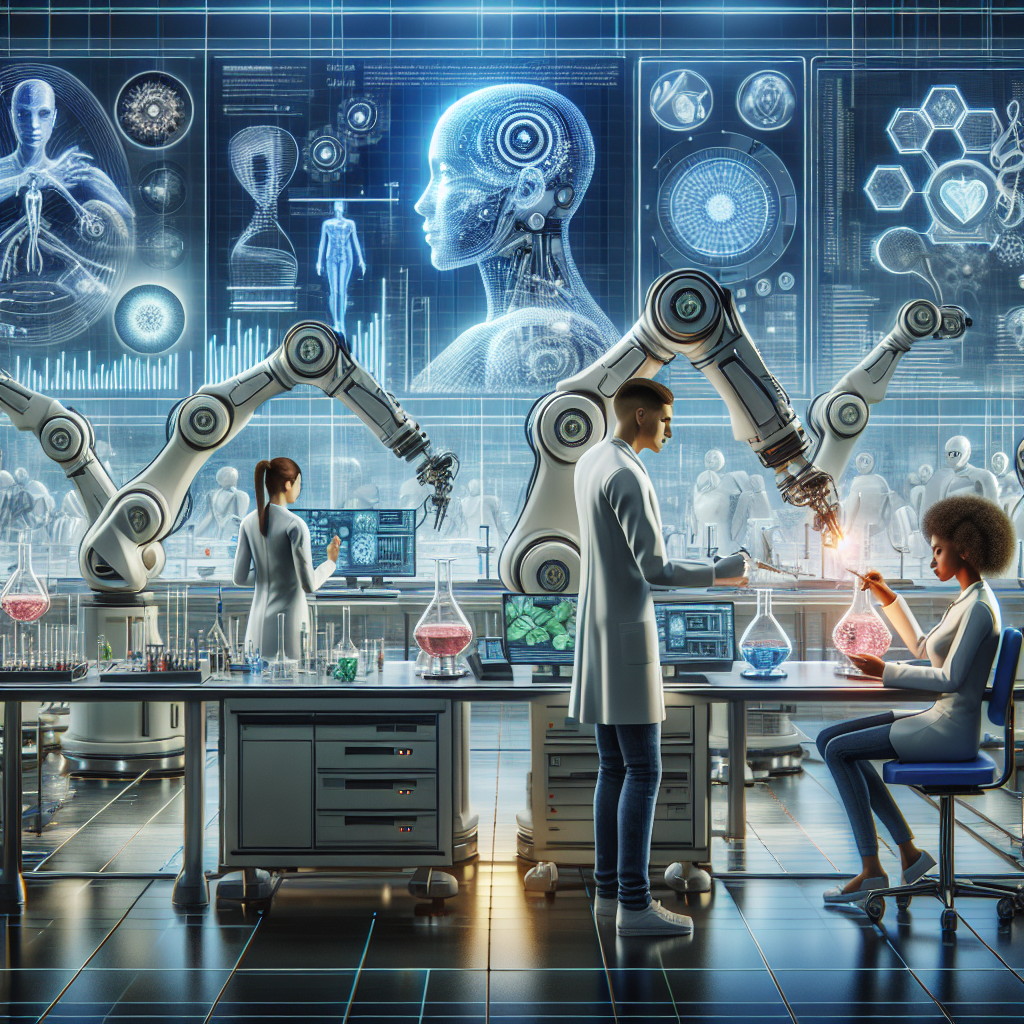“`html
Innovation Explored: AI in Biotechnology
Hey there! Ever wondered how AI is transforming the world of biotechnology? You’re in the right place. Let’s dive into this fascinating intersection of technology and biology and answer some of the most common questions people have.
What is AI in Biotechnology?
Artificial Intelligence (AI) in biotechnology refers to the use of algorithms and machine learning to analyze biological data more efficiently. Think of it as giving computers the smart ability to assist scientists with complex data and predictions. From drug discovery to personalized medicine, AI is making huge waves in the biotech sector.
How is AI Used in Drug Discovery?
Great question! AI accelerates the drug discovery process by:
- Identifying Potential Targets: AI helps in sifting through large datasets to find relevant biological targets for new drugs.
- Predicting Drug Interactions: It can model how different drugs will interact with each other and the human body, potentially predicting side effects earlier than traditional methods.
- Optimizing Clinical Trials: AI is used to design more effective clinical trials by selecting the ideal candidates and predicting outcomes, saving time and resources.
Can AI Really Personalize Medicine?
Yes, and it’s quite impressive! By using AI to analyze genetic data and patient information, healthcare professionals can tailor treatments to individual patients. This means you could get a treatment plan that’s just right for you, based on your unique genetic makeup, lifestyle, and environment.
What are Some Examples of AI in Biotechnology?
- CRISPR Gene Editing: AI is being used to increase the precision of CRISPR technology, making gene editing safer and more effective.
- Heart Disease Prediction: Machine learning models are helping to predict cardiovascular diseases by analyzing patient data from wearable devices and electronic health records.
- Proactive Healthcare: AI systems can flag deviations in health data, allowing healthcare providers to take action before a major health issue arises.
Are There Challenges with AI in Biotechnology?
Of course! While AI is a powerful tool, it comes with its challenges:
- Data Privacy: With massive amounts of personal health data involved, ensuring privacy and security is a big concern.
- Regulatory Hurdles: Regulatory frameworks can be slow to adapt to new technologies, creating barriers to AI integration.
- Bias and Transparency: AI systems can sometimes produce biased results if they are trained on incomplete or biased data. Making these systems transparent and accountable is crucial.
What’s the Future of AI in Biotechnology?
The sky’s the limit! We expect AI to make healthcare more predictive, preventive, personalized, and participatory. It will likely play a critical role in combating global health crises, pushing forward scientific frontiers, and making healthcare more accessible to all. Exciting times are ahead!
In conclusion, AI is not just a buzzword in biotechnology—it’s a groundbreaking force reshaping the field. Whether you’re just curious or considering a career in biotech, now is a thrilling time to dive into this exciting world!
Feel free to drop your thoughts or questions in the comments below. Until next time, stay curious and keep exploring!
“`
